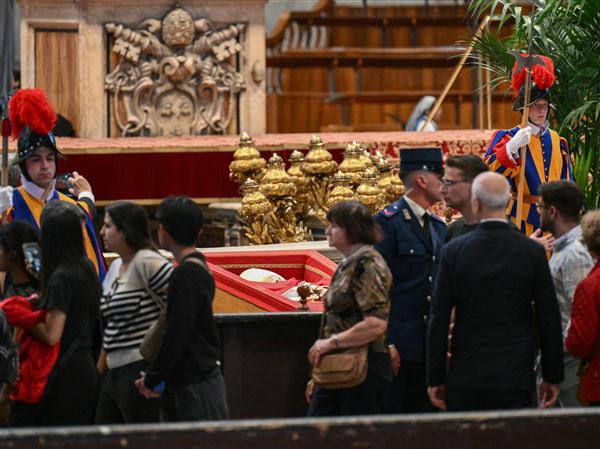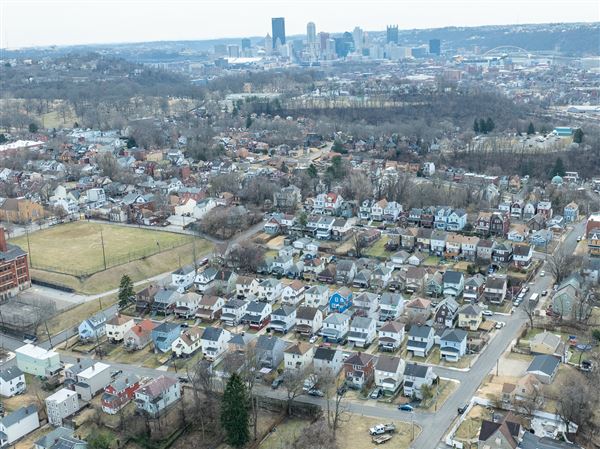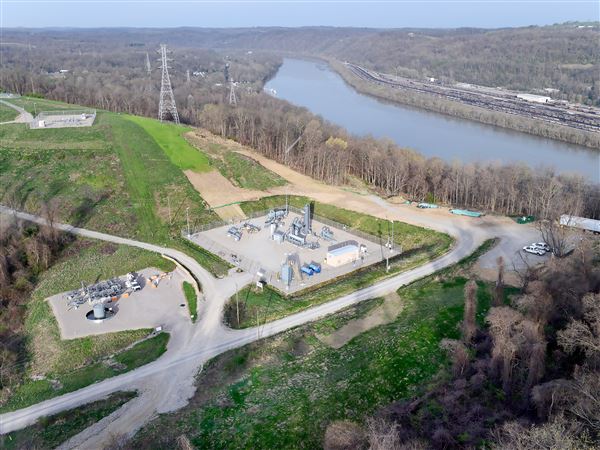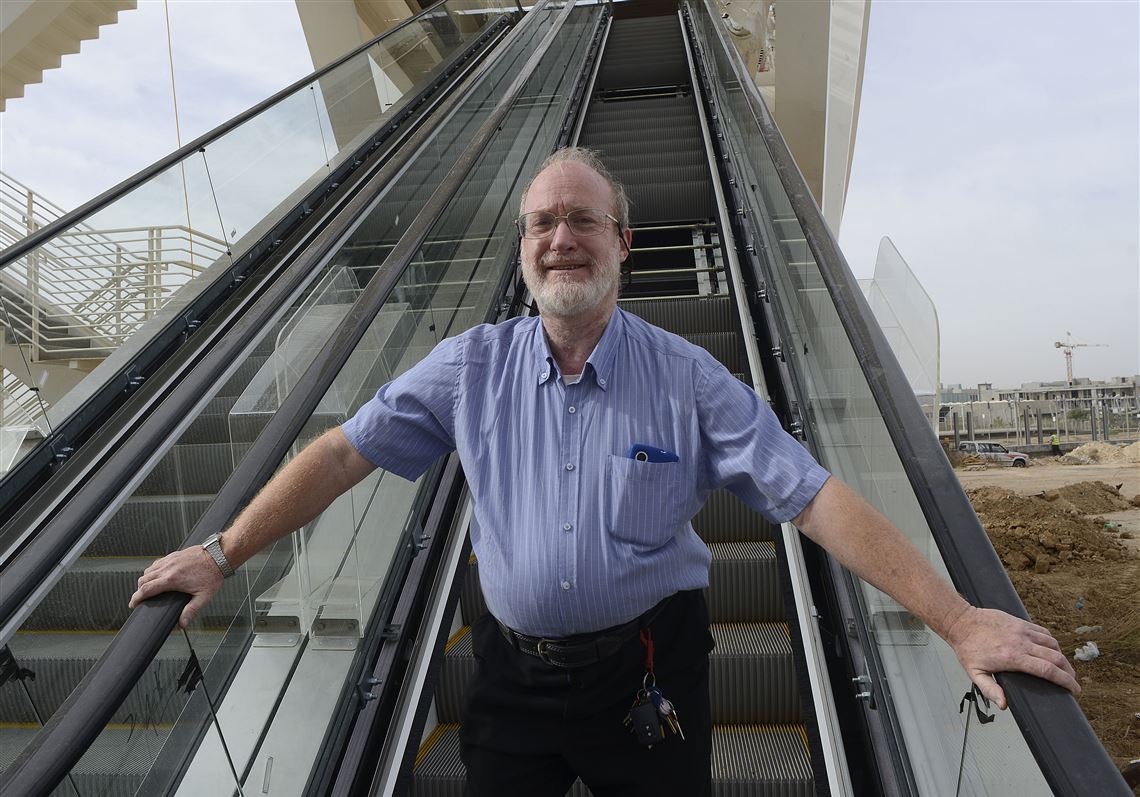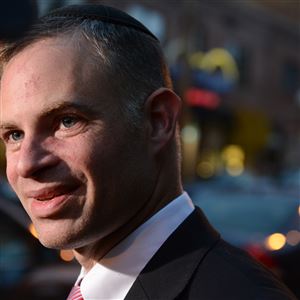BEIT YATIR, West Bank — To get to work, Dov Bloom drives out of his town of roughly 100 Jewish families in the rocky Judean hills, through one guard post into a landscape dotted with Palestinian villages and Bedouin camps, and later through a heavily armored checkpoint into, finally, Israel's high-tech desert wonderland.
He's not out here on the edge of the western world for the convenience. "I like the quiet, moral community," he said today. "I feel we're making a contribution by living in an area that's relatively unsettled."
He's quick to note the empty hillsides, sometimes divided by ancient stone walls into apparent grazing plots. The land on which Jews like him have settled wasn't previously being used, he said, shortly before walking by a former Jordanian police station that is now part of an Israeli training facility for young men preparing for military service.
Twenty years ago, when Israeli Prime Minister Yitzhak Rabin was negotiating with Palestinian leader Yasser Arafat, most of his countrymen "accepted the idea of some sort of Palestinian entity" that might have enveloped border towns like Beit Yatir, he said. "I think that now the majority of the population realizes that, right now, in 2015, is a pipe dream," he added.
Skin grafts and desert sun
Descendent of journalists, including former Pittsburgh Post-Gazette science writer and Jewish Chronicle founder Albert W. Bloom, the young Dov Bloom moved from Pittsburgh to Israel in 1979. He ended up working the fields of Kibbutz Ma’ale Gilboa in the 1980s.
Then in 1988 a Palestinian petrol bombing of a civilian bus left him and his wife, Sandy, badly burned, and five other passengers dead. Luckily, the Blooms had left their three children with her parents, who were visiting Israel at the time.
“We had skin grafts and it took a long time to get out of it,” he said. “I couldn’t work outside, so I shifted and in the 1990s I ended up teaching computer science.” Mrs. Bloom, who is originally from New York City, needed years of treatment. She now works as a translator.

Dov Bloom, who grew up in Pittsburgh where his father Albert Bloom was a past editor of the Jewish Chronicle, lives on the moshav of Beit Yatir, in the southern portion of what is called Judea by settlers and the West Bank by others. Here he poses with his wife, Sandy, in front of their home. (Larry Roberts/Post-Gazette)
Mr. Bloom, now 62, now teaches software engineering at Sami Shamoon College of Engineering and at Bnei Akiva Yeshiva, both in Beersheba. His college classes include Jews and Palestinians.
Formerly a sandy backwater, the city of around 200,000 in the Negev Desert is filling up with new technology parks, the buildings festooned with the logos of companies like Audiocodes, dbMotion, Sandisk and Oracle. Some of them employ his students.
“The national plan is for a number of the armed forces headquarters [including intelligence and communications] to move south, to move right close to Beersheba,” Mr. Bloom said.
He chose not to live there in town. Rather, he picked a spot west of Masada, where Jews killed themselves rather than submit to the Romans, and halfway between the Beersheba and Hebron.
Hebron is the Palestinian-dominated city that hosts the Cave of the Patriarchs, revered in both Judaism and Islam. Hebron has been the scene of massacres of Jews by Palestinians and Palestinians by Jews, and continues to trail only Jerusalem in terms of the intensity of the clash between the two cultures.
"I like living in this area particularly of Israel because I feel it's really connected to the Bible," he said. He finally feels rooted. He planted in his yard pomegranate, olive, fig and date palm trees, plus grape vines — the five plants mentioned in Deuteronomy.

Dov Bloom, who was burned in a bus bombing and now teaches computer technology, shows an editorial from during the Six-Day War in which his father, Albert Bloom, past editor of the Jewish Chronicle, writes about needing to address the issue of captured lands. (Larry Roberts/Post-Gazette)
"The battle is still on"
Mr. Bloom knows well the 3,000-year-long contest for the land on which he lives, especially the recent chapters.
He pulled from his bookshelf a bound volume of editions of the Jewish Chronicle from 1967. His father that year covered the Six-Day War, when Israel — blockaded and surrounded on three sides by numerically superior Arab armies — struck first and took the West Bank, Gaza Strip, Golan Heights and Sinai Peninsula.
Albert W. Bloom wrote a story just before the war's start headlined, "View from Masada Holds Rock-Ribbed History Lesson." A week later, he wrote an analysis story: "After the Battles — The Battle!" It predicted that the long-term challenge would be the disposition of the West Bank.
"The battle is still on," Dov Bloom said.
Advocates for a Palestinian state argue that every Israeli who moves into the West Bank makes it that much harder to have peace. Mr. Bloom counters that until a real Palestinian leader emerges and accepts that Jews will live in Israel, there's not much sense in talking.
By living in Beit Yatir, he gives weight to that perspective. So does his daughter, a clinical psychologist, who lives in the brand new town of Leshem, part of what Jews call Samaria and Palestinians say is in their West Bank.
Life in contested territory hasn't all been property closings and pomegranate plantings.
In 2013, the Blooms spoke out against Israeli’s release of perpetrators of the bus bombing, who were among 104 Arab criminals whose returns were sought by the Palestinian Authority.
“We spoke our piece, and we expressed to the ministry of justice that we were opposed to the prisoner release,” he said. “But the terrorists were released. … The Palestinians, after these guys are released, treat them as big heroes.”
Still, the couple hasn’t let the experience paralyze them.
“Is it going to turn you into a stay at home, or someone who hates every Arab?” he asked. “Are you going to be coward, or frightful, or be aggressive? I don’t think any of that happened to us.”
Coming tomorrow morning: A pastor’s wife takes up the Palestinian cause
First Published: October 23, 2015, 2:48 p.m.

